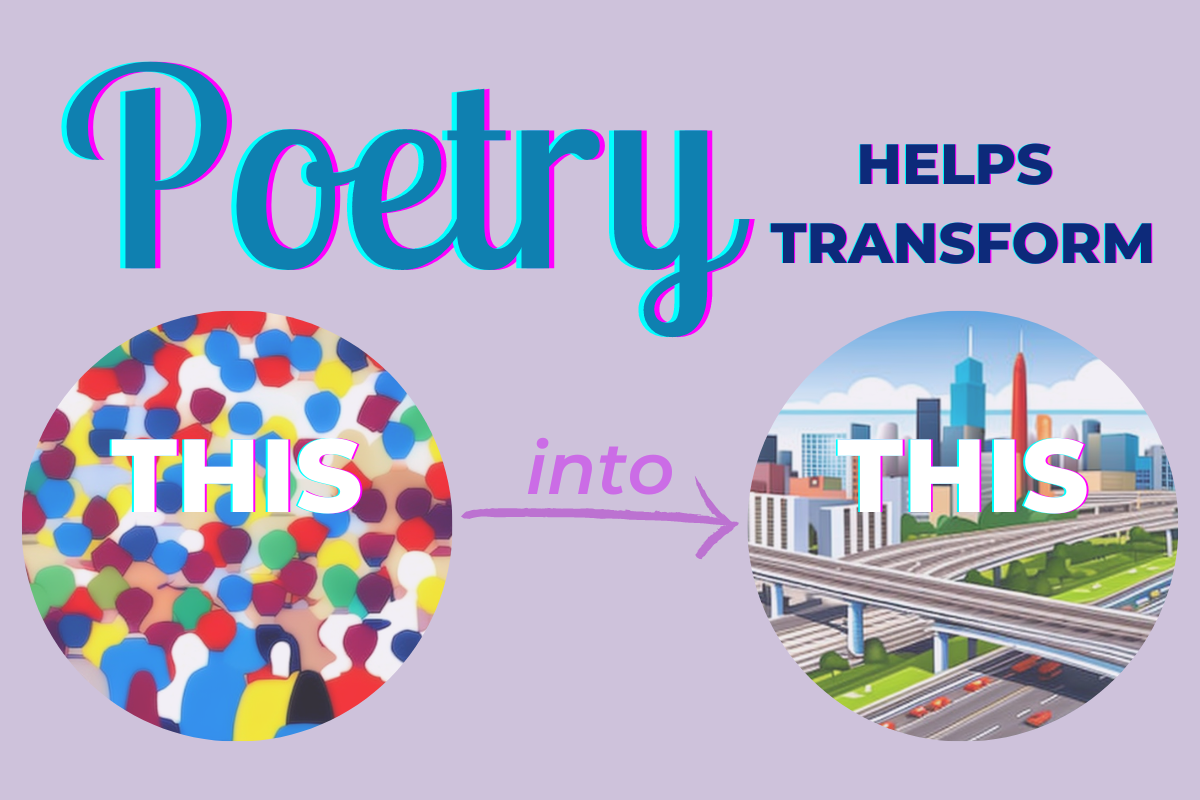Therapeutic Power of Writing Poetry: 5 Benefits for Your Mental Health
The therapeutic benefits of poetry have been widely documented, with multiple studies recognizing poetry as an effective tool for mental health and emotional well-being. Here are five benefits of writing poetry for your mental health.

[Disclosure: This blog post was created with the assistance of AI technology]
Poetry has been a go-to way to express ourselves since ancient times; it's a powerful form of communication that can help us process emotions, explore our inner thoughts, and reflect on our experiences. But poetry isn't just an outlet—it can also provide comfort and healing. The therapeutic benefits of poetry have been widely documented, with multiple studies recognizing poetry as an effective tool for mental health and emotional well-being.
Here are five benefits of writing poetry for your mental health.
1. Self-expression
Poetry allows people to communicate their innermost thoughts and feelings without worrying about how another person might interpret or judge them. As an act of self-care, writing poetry is healing because it can help us release stored-up emotions and reconnect with ourselves. The poet is free to explore and express their feelings, no matter how dark or negative, and poetry becomes a powerful outlet for self-expression. Poetry can offer an emotional outlet and help us put words to experiences, memories, and emotions that may be too difficult or uncomfortable to communicate in other formats.
2. Self-compassion
Poetry allows us to explore complex or charged topics safely and creatively. The process of writing a poem can provide clarity and courage to take on personal changes and difficult conversations. In sharing our poetry, whether to ourselves or with others, we can find greater understanding, acceptance, and compassion for the complexity of our lives. Thus, poetry can offer support in the most challenging situations.
3. Emotional intelligence
Another reason poetry is so valuable is that it doesn't just provide the outlet for self-expression--it supplies the poet with the poetic tools to shape the emotions into words and arrange those words to express a feeling, experience, or idea. It's like vehicles, traffic flow, and roads—imagine that words are vehicles, structure and flow are the roads, and literary devices are the traffic.

The practice of writing poetry is a process of transforming complex ideas and emotions into something more structured and controlled. In this sense, not only is it beneficial for self-care through self-expression, but it also helps develop emotional intelligence.
4. Self-reflection
Poetry is also an invaluable tool for self-reflection and understanding. In the words of Pablo Neruda, "Poetry is like a mirror that reveals the invisible, every poem is a window to the soul." Through writing and reciting poetry, one can gain insight into their subconscious and see the true essence of who they are and how they feel. This form of self-reflection can often be cathartic, especially if the poet is able to find meaningful closure and inner peace through their words.
5. Healing
Finally, poetry can offer a safe space for those who are suffering. While creating poetry, poets can be authentic and vulnerable. They can express their emotions without fear. And they can freely and creatively experiment both with emotions and with language. It can help people heal and connect with themselves and the world more profoundly and meaningfully. Poetry can also provide an avenue for individuals to share their experiences and reach out to one another. By connecting with other poets through their poetry, one can find a community and a sense of belonging.
In conclusion, poetry has been widely recognized as an effective therapeutic practice. Poetry can provide a safe space for those who are suffering and serve as a way to connect with a community. Through writing, poets can express their thoughts and emotions without fear of judgment, explore complex or charged topics, develop emotional intelligence, engage in self-reflection, and find comfort and healing. Ultimately, poetry can be an invaluable tool for mental health and emotional well-being.